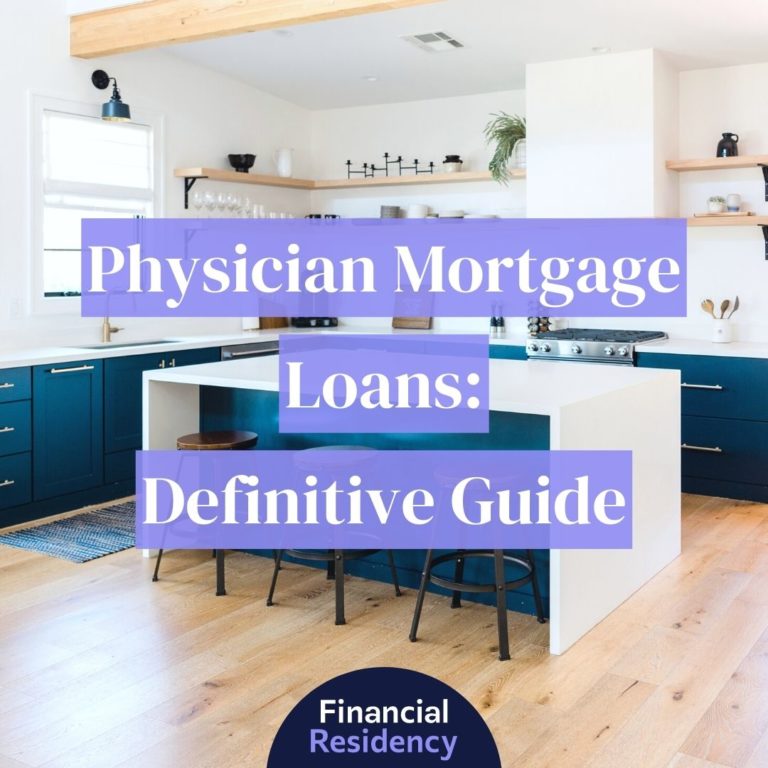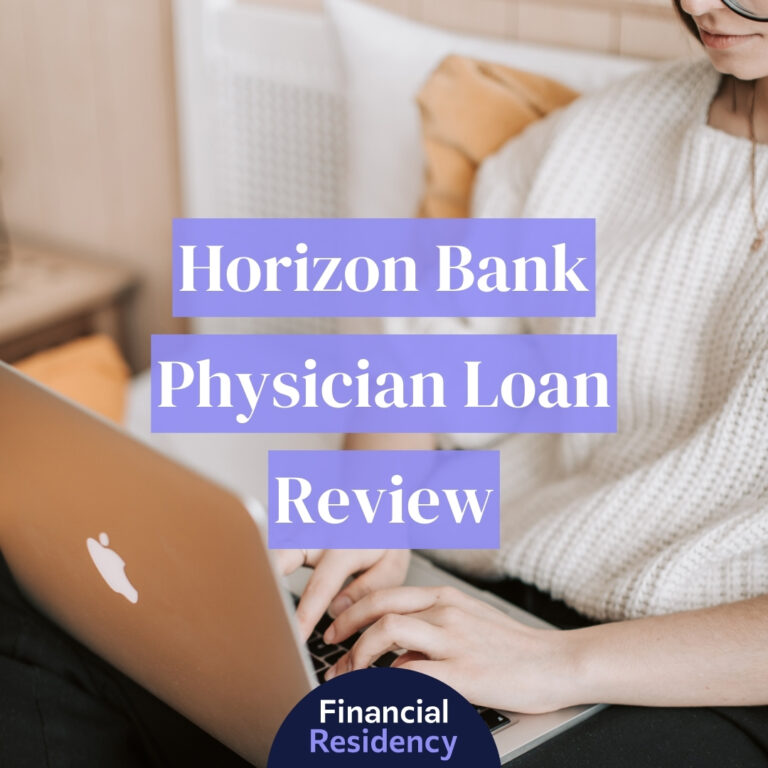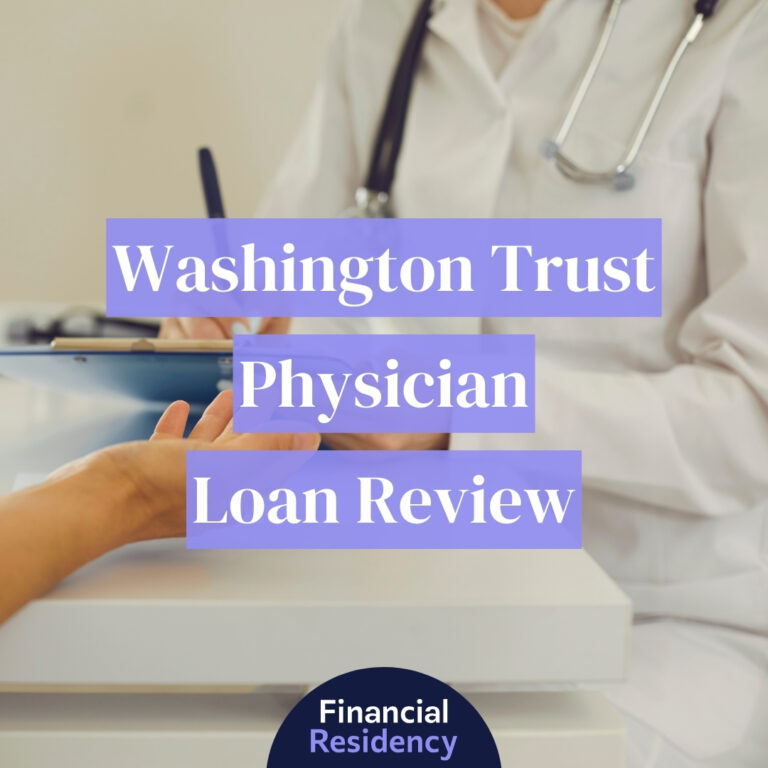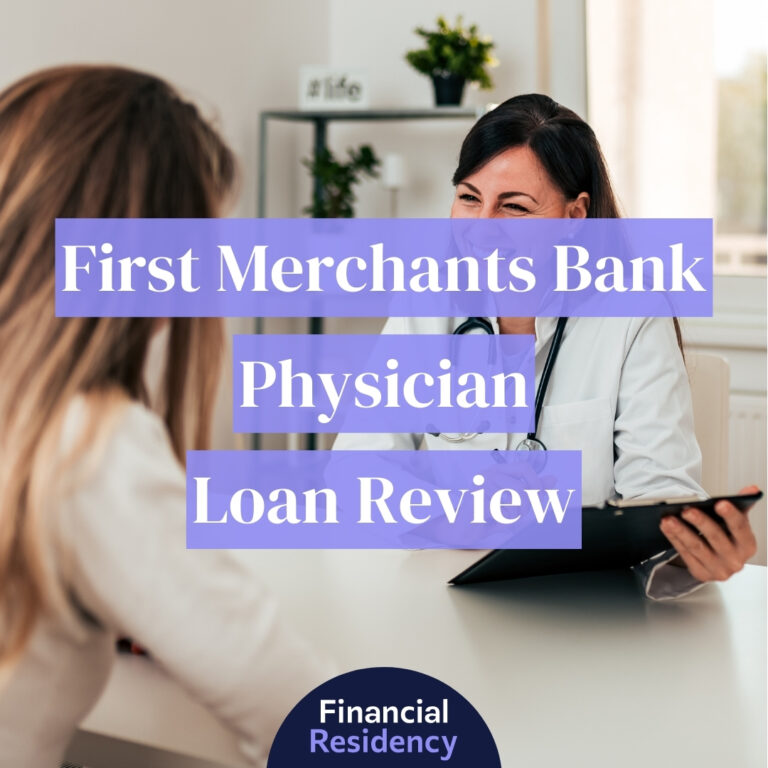Certified registered nurse anesthetists (CRNA) are expected to see skyrocketing job growth of more than 38 percent by 2031. This rate of job growth drastically outperforms comparable high-paying professions.
You would think that highly educated medical professionals with sizable incomes would easily be able to pursue homeownership, but it’s not always the case.
CRNA home loans can help you purchase your dream home without the barriers of saving for a down payment, paying monthly mortgage insurance, or meeting stringent employment history requirements.
Keep reading to dive deep into the best CRNA home loans and how they can meet your unique needs.
What is a CRNA Mortgage?
A CRNA home loan is a type of mortgage product designed to meet the needs of nurse anesthetists who may not otherwise qualify for a conventional mortgage.
CRNA home loans are typically part of a lender’s doctor mortgage offerings. A doctor’s mortgage helps high-earning professionals purchase a new home or refinance an existing home without a sizable down payment.
Many mortgage programs for medical professionals offer low down payment options between 5 and 15 percent. Typically down payments lower than 20 percent require primary mortgage insurance (PMI). CRNA home loans waive this requirement, which can help reduce monthly mortgage payments.
These loan programs also have more lenient underwriting guidelines for debt-to-income ratios. In many cases, CRNA home loans will exclude deferred student loan debt or allow higher DTI ratios than conventional mortgages.
While doctor mortgages are more lenient in many ways, a CRNA home loan may not be right for you if you have bad credit. Rauf Majidian, broker and owner of Skyline Mortgage says, “680 is a safe spot” to make sure you have several mortgage options to choose from.
Top 6 CRNA Mortgage Lenders
Here are the top CRNA home loans:
- Flagstar Bank
- First National Bank of Omaha
- Evolve Bank & Trust
- First Citizens Bank
- The Federal Savings Bank
- Premier Bank
Discover The Best Lenders Answer just a few questions about your career, where you're buying, and how much you want to borrow. Our service will then show you the exact programs you're eligible for from vetted physician loan specialists who will guide you through every step of the process – obligation-free!
1. Flagstar Bank
- BBB Grade: A+
- D. Power Score: 781
- State Availability: Nationwide
Flagstar Bank offers a professional loan program to high-earning professionals within the first 10 years of their careers. The following careers are included in the professional loan program:
- ATP Pilot
- Attorney
- Certified Public Accountant
- Clinical Nurse Specialist
- Doctor of Dental Medicine (DMD)
- Doctor of Dental Surgery (DDS)
- Doctor of Ophthalmology (MD)
- Doctor of Optometry (OD)
- Doctor of Osteopathy (DO)
- Doctor of Pharmacy
- Doctor of Podiatric Medicine (DPM)
- Medical Doctor (MD)
- Medical Resident (Educational License)
- Nurse Anesthetist
- Nurse Practitioner
- Physician Assistant
- Registered Nurse
- Veterinarian
PMI is waived with this home loan, so you can save hundreds on monthly mortgage payments compared to a conventional loan. All Flagstar Bank professional loans are adjustable-rate mortgages.
Borrowers with a 720 credit score or higher can qualify for up to $1 million with no down payment. The program allows down payments as low as 5% on loans up to $1.5 million.
These home loans must be used to purchase a primary residence and all borrowers must be first-time homeowners. Loans may be used to purchase or rate/term refinance a condominium or townhome.
Learn More:
2. First National Bank of Omaha (FNBO)
- BBB Grade: A+
- D. Power Score: 847
- State Availability: CO, IL, IA, KS, NE, SD, TX, WY
First National Bank of Omaha (FNBO) offers its Physician’s Mortgage Loan program to medical doctors, dentists, veterinarians, Physician Assistants (PA), Nurse Practitioners (NP), and Certified Registered Nurse Anesthetists (CRNA).
Borrowers must have a minimum credit score of 720 to qualify, but loans up to $850,000 don’t require a down payment. Loans up to $1.5 million can be secured with 5–10% down.
You can choose a standard 30-year fixed-interest-rate mortgage or a 15-year adjustable-rate mortgage.
Learn More:
3. Evolve Bank & Trust
- BBB Grade: B
- D. Power Score: N/A
- State Availability: All 50 states
Evolve Bank & Trust provides up to $2 million in financing for eligible medical professionals interested in purchasing a home. The following degrees are included in the program:
- CRNA
- DC
- DMD
- DDS
- DPM
- MD
- NP
- OD
- PA
- RPH
- DVM
Loans up to $1 million can be approved without a down payment. Loans up to $1.25 million will require 5% down payments, and loans up to $2 million will require a down payment between 10 and 15%.
These loan amounts are significantly higher than comparable physician loan programs, and PMI isn’t required.
Learn More:
4. First Citizens Bank
- BBB Grade: B
- D. Power Score: 838
- State Availability: AZ, CA, CO, FL, GA, KS, MD, MO, NE, NV, NM, NC, OK, OR, SC, TN, TX, VA, WA, WV, WI
First Citizens Bank offers two medical professional mortgage options to the following degrees:
- CRNA
- NP
- DDS
- DMD
- DPM
- OD
- DO
- DC
- MD
- PA
Both mortgage programs provide 100% financing, including closing costs, for the purchase of a new home or refinancing of an existing home. Unlike many doctor loan programs, First Citizens Bank will even provide construction loans to build your dream home.
First Citizens Bank offers 100% mortgages, streamlining money management by bundling all costs into one monthly payment. This mortgage lender also offers 80/20 mortgages, which can allow you to build home equity faster.
Borrowers are required to have a minimum credit score of 680 and an account with First Citizens Bank.
There isn’t an age limit for applicants, but you’ll be required to show an employment contract or three years of tax returns to verify your income.
Learn More:
5. The Federal Savings Bank
- BBB Grade: A+
- D. Power Score: N/A
- State Availability: All 50 states
The Federal Savings Bank provides home loans to medical professionals without requiring PMI, prior employment history, or significant down payments. The following degrees are included in the program:
- CRNA
- Dentist
- DO
- DPM
- DVM
- MD
- NP
- Nurse Midwife (APRN)
- Optometrist (OD)
- PA
- PharmD
- Psychologist
These home loans may be used to purchase a single-family owner-occupied residence of up to $2 million. Deferred student loans are completely excluded from DTI calculations.
While not all mortgage lenders allow gift funds, The Federal Savings Bank will allow gifts from immediate family members to be used for down payments, closing costs, or cash reserves.
Learn More:
6. Premier Bank
- BBB Grade: A+
- D. Power Score: N/A
- State Availability: IN, MI, OH, PA
Premier Bank opens its Medical Professional Loan program to physicians, nurse anesthetists, certified nurse practitioners, physician assistants, veterinarians, physical therapists, optometrists, and chiropractors.
As part of the program, all eligible borrowers can qualify for up to $750,000 without a down payment. Loans up to $1 million will require a minimum down payment of 5%, but all programs exclude PMI requirements.
Student loans deferred for at least 12 months won’t be factored into DTI calculations. You can choose a fixed or adjustable-rate mortgage product based on your financial needs.
You also have the option to close on your home before you start working if you can provide proof of a signed employment contract.
Learn More:
Pros and Cons of CRNA Mortgages
Considering the pros and cons is an important part of any informed decision––shopping for a CRNA home loan shouldn’t be any different.
Pros:
- Flexible debt-to-income calculations: CRNA home loan programs will often exclude deferred student loans or use your income-driven repayment amount when calculating your debt-to-income ratio.
- No PMI: CRNA home loan programs don’t require private mortgage insurance, regardless of your down payment amount.
- Low down payment: CRNA mortgage options will offer 85% or more financing for eligible borrowers.
- Refinancing: You can use a CRNA mortgage program to refinance your existing home when it’s advantageous.
- Purchase before your start date: In many cases, you can use an employment contract to qualify for a CRNA home loan. It counts as proof of earning potential.
Cons:
- Closing costs: Not all CRNA home loans cover closing costs, which can be a significant expense. You may not find out until you receive the closing disclosure at the end of the home-buying process.
- Can purchase outside your budget: Doctor loan programs aren’t subject to the same limits as conforming home loans, so it can be easy to borrow loan amounts that exceed a reasonable budget.
- High credit score: Doctor mortgages have a higher credit score requirement than other loan programs. You’ll want to have a credit score of at least 700.
- High-interest rates: Because physician loans have lower down payments than conventional mortgages, the interest rates can be higher to compensate.
- Residence restrictions: This type of home loan can often only be used to purchase or refinance your primary residence.
Other Home Loan Options for CRNAs
You’ll want to consider all your available mortgage options before deciding.
1. Conventional Loan
Conventional loans are the default choice for more than 80% of US homeowners who have a mortgage, according to 2021 data from the Home Mortgage Data Disclosure Act.
With more rigorous qualifications but fewer restrictions on the types of properties included in the program, in most cases, you’ll need a credit score of at least 620, which is significantly lower than the required credit score for a physician mortgage loan.
First-time home buyers can get a conventional loan for as little as a 3% down payment, but if you’re purchasing a second home, you’ll need to put down at least 10%. Conventional loans typically require PMI until you reach 20% home equity.
In general, the larger your down payment and the better your credit history, the more favorable the terms of a conventional loan will be.
Unlike many more specialized loan programs, conventional loans can be used to purchase vacation homes and rental properties, which can help you bring in additional income.
2. VA Loan
VA loans are specialized loan products for current and former members of any armed services branch or reserves. Spouses of veterans who have died in the line of duty are also eligible for VA loans.
This type of loan is insured by the Department of Veteran Affairs but serviced by local mortgage lenders who are incentivized to offer more attractive terms because the VA assumes the risk of default.
VA loans must be used to purchase or refinance a primary residence that meets the property condition requirements. For example, VA loans may not approve properties with structural issues, such as termite damage.
Instead of requiring a minimum credit score, mortgage lenders who offer VA loans are asked to review the entire loan profile.
VA loans don’t require a down payment and like physician loans, you won’t be required to pay PMI. This type of loan requires an upfront funding fee based on a percentage of your total loan amount, but it may be waived or included in your loan for some borrowers.
One of the biggest benefits of a VA loan is having much of your closing costs paid by the seller or rolled into your total loan amount. A VA loan is a worthwhile consideration for any qualifying borrower, but especially those who may not have a lot of cash on hand.
3. FHA Loan
FHA loans are similar to VA loans in that they are backed by a government body and issued by a local mortgage lender. In this case, the Federal Housing Administration (FHA) insures the loan.
FHA loans typically only require a 3.5% down payment for borrowers with a credit score of at least 580. The FHA will work with scores as low as 500, but you must put down at least 10%.
This type of loan will require monthly PMI payments. An up-front funding fee is due at closing. The up-front funding fee is always 1.75% of the total loan amount.
To qualify for an FHA loan, all properties must be appraised by an FHA-approved appraiser. FHA loans also have pre-set limits based on your geographic area. Regions with lower costs of living will be subject to lower limits but regions with a higher cost of living will have adjusted loan limits to make it easier to purchase a home there.
Some areas like Hawaii and Alaska have notoriously high construction costs. In these cases, homeowners can qualify for special exception loan limits.
4. USDA Loan
USDA loans are another type of federally-backed loan. The United States Department of Agriculture insures mortgages for low or moderate-income home-buyers in rural areas.
Because USDA loans are specially designed for economically disadvantaged families purchasing homes in rural areas, the program has pre-set income limits. Income limits are set regionally and may change from year to year. You can determine your qualification through the USDA’s income and property eligibility site.
The minimum credit score for this home loan is 640. Borrowers must also complete a certified homeownership education program before they can receive funding.
While many other mortgage loan programs are available with fixed and adjustable-rate options, USDA loans are only available with 30-year fixed-interest loan terms.
Like VA loans, USDA loans do not require a down payment. However, USDA loans charge an annual fee of 0.35% of the total loan amount. This fee will be included in your monthly mortgage payment for the loan’s lifetime.
First-time Homeowner Programs, Grants, and Down Payment Assistance
Nurses may be eligible for certain grants and assistance with closing costs or down payments. The assistance available can vary from state to state. In many cases, first-time homeowners are eligible for special assistance.
Nurse Next Door
The Nurse Next Door program offers down payment assistance, first-time home buyer grants, and specialized credit repair help to healthcare professionals and other first responders.
The program will provide a free appraisal and discount title fees for the purchase of any home on the market. The grant programs will provide up to $8,000 in free assistance––meaning this assistance does not have to be paid back.
Nurse Next Door will also provide up to $10,681 in down payment assistance. All Nurse Next Door home loans are serviced by participating mortgage lenders with competitive interest rates.
National Homebuyers Fund
The National Homebuyers Fund (NHF) is designed to provide closing cost and down payment assistance for prospective homeowners across the country.
With NHF, you can receive a grant for 5% of the mortgage amount to use on your down payment or closing costs.
This assistance can be used with conventional mortgages, VA, FHA, and USDA loans.
Down Payment Assistance Programs in Your State
Each state offers specialized down payment assistance (DPA) programs. Your loan officer or Realtor can work with you to find the resources that best fit your needs.
Frequently Asked Questions
What is the difference between a loan officer and a mortgage broker?
The difference between a loan officer and a mortgage broker is a loan officer works with one financial institute whereas a mortgage broker works with a variety of lenders to find the borrower the best fit.
If you’re unsure which CRNA home loan program is best for your financial situation, working with a mortgage broker can help you review your mortgage options.
How much debt do CRNAs have?
Most graduate nurses (including CRNAs) have between $40,000 and $55,000 of student loan debt. In May 2021, the average annual salary for nurse anesthetists was $212,444.
If you don’t have other debts, this debt is roughly 20–27% of your annual income, which would make you a good candidate for several mortgage programs.
You can also talk to your student loan servicer about income-driven repayment (IDR) plans. Typically, IDR plans calculate your monthly payment at 10–15% of your discretionary income.
What are the benefits of using a licensed mortgage broker?
The benefits of using a licensed mortgage broker are manifold:
- Provides customized service
- Guides you through the home-buying process
- Reviews hundreds of mortgage loan products for you
- Finds you a competitive interest rate
- Offers flexibility for busy medical professionals
- Saves you time by using one mortgage application
Do CRNAs qualify for physician mortgage loans?
Yes, CRNAs qualify for some physician mortgage loan programs. You can work with a broker to find the mortgage loan program that best fits your needs.
What kind of house can a CRNA afford?
The kind of house a CRNA can afford will depend on the housing market where you live, your debt-to-income ratio, your credit score, and several other factors.
For example, some mortgage lenders may require savings account statements to confirm you have adequate cash reserves to qualify for the loan.
You can use a mortgage pre-qualification calculator to get a better idea of the price range you can expect when you purchase a home.




